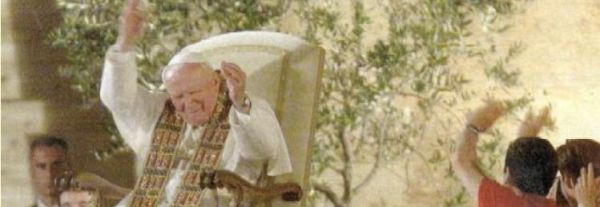The first thing Andrew did after meeting Jesus was to seek out his brother Simon and tell him: "We have found the Messiah!". Later Philip, in the same way, sought out Nathanael and told him: "We have found him of whom Moses in the Law and the Prophets wrote, Jesus, the son of Joseph of Nazareth" (cf. Jn 1:35-51).
After the initial discovery, there follows a dialogue through prayer, a dialogue between Jesus and the one who received the call, a dialogue that goes beyond words and expresses itself in love.
Questions are an important part of such a dialogue. For example, in the Gospel account of the disciples' call, we are told that "when Jesus had turned around and seen them following him, he asked them, "What are you looking for?" They answered him, "Rabbi (which means teacher), where do you live?". 'Come and see,' he answered" (Jn 1:38-39).
What begins as a discovery of Jesus leads to greater understanding and dedication through a devoted process of questioning and discernment. In the course of that process, our reasons are purified. We are confronted with burning questions such as, "What are you looking for?" And we even find ourselves asking the questions of Jesus, as Nathanael did: "How do you know me?" (John 1:48). Only after reflecting sincerely and honestly in the silence of our hearts do we begin to convince ourselves that the Lord is really calling us.
Even then, however, the process of discernment is not finished. Jesus says to us what he also said to Nathanael: "You will see greater things than these!" (John 1:50). Throughout the course of life, after we have made a sacred and unchanging promise and begun to actively serve the Lord, we still need the dialogue of prayer that will constantly deepen our knowledge and love for our Lord Jesus Christ.
[Pope John Paul II, Address to American seminarians 13 September 1987]












